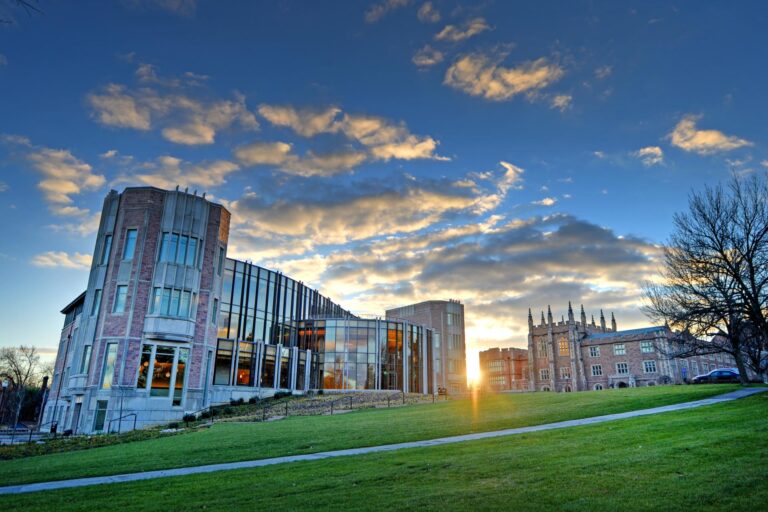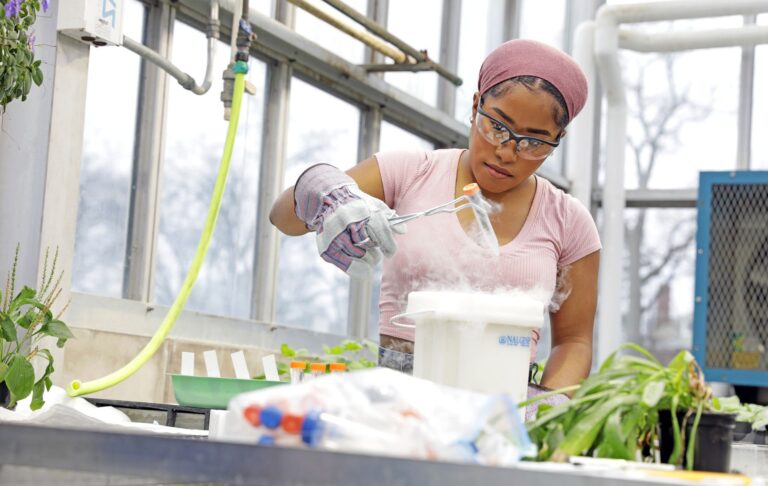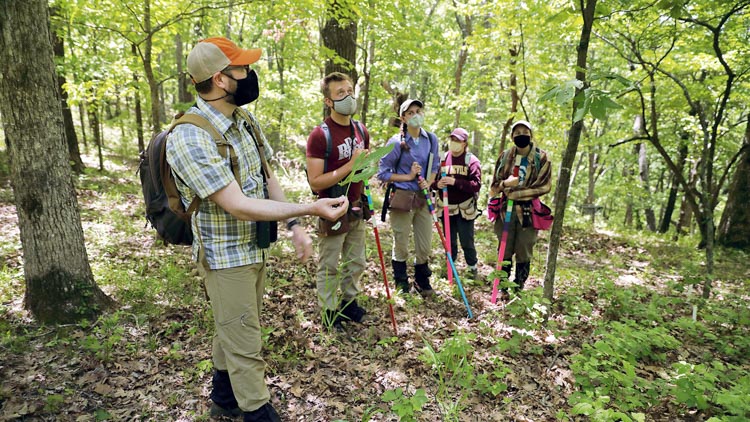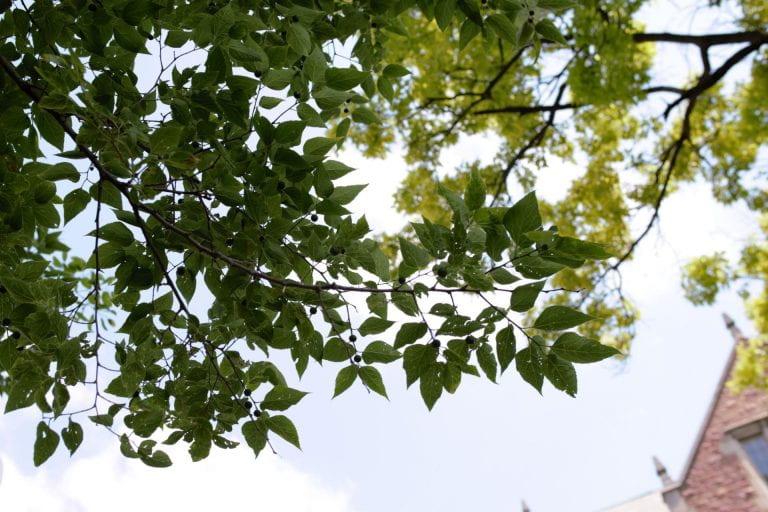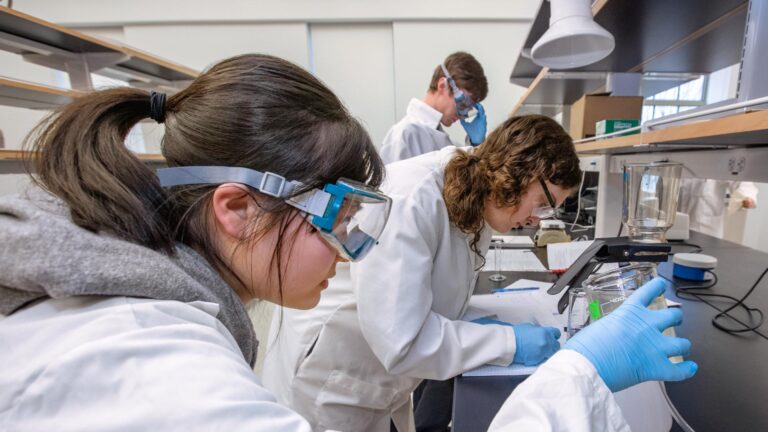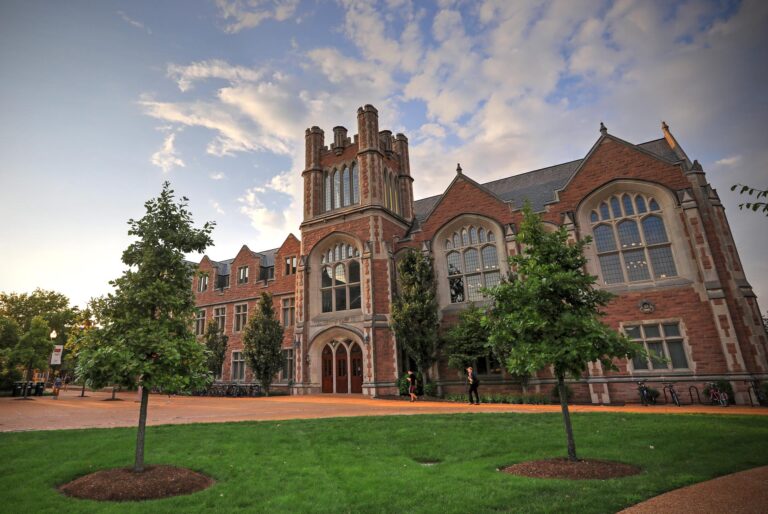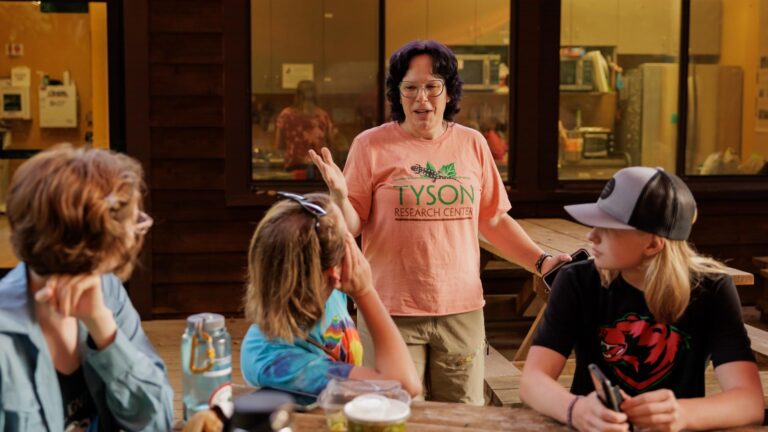Public Exchange
The Public Exchange transforms research into public good by partnering with WashU researchers, organizational leaders, and community members to address a question, challenge, or goal that helps people live better, safer lives. Together, we develop and design a project, find smart solutions, and put them into practice.
Undergraduate Academics and Programs
Washington University in St. Louis offers a variety academic programs, majors, and courses for undergraduate and graduate students.
Climate Curriculum Database
The Climate Curriculum Database is designed to allow students, professors, and others in the WashU community to find courses related to climate change in all of its related disciplines, from economics to architecture to engineering. Each course links to the WebStac course listing, where more information about syllabi, course descriptions and enrollment can be found.
Climate Curricular Guides
Originally compiled by the WashU Climate Change Program, these guides pull climate-related courses into thematic lists to provide interested students with suggested courses that can be taken along any course of study. The Climate Curricular Guides are simply meant to assist students in course selection.
WashU Arboretum
The more than 300 species of trees on the Danforth Campus play a major role in the outdoor architecture as key elements of the campus landscape. The campus canopy is the result of careful planning for the continued success of the local plant community.
St. Louis Policy Initiative
The St. Louis Policy Initiative brings diverse theoretical and methodological perspectives to study policy in our region.
Research Facilities
WashU has a variety of research facilities across both of our campuses. Find out how they might support your work.
Buder Center
The Kathryn M. Buder Center for American Indian Studies at the Brown School at Washington University was founded to provide scholarships for American Indians and has grown into one of the most respected centers in the nation for academic advancement and study of American Indian issues related to social work.
Interdisciplinary Environmental Law Clinic
The Interdisciplinary Environmental Clinic (IEC) functions as a pro bono law practice handling environmental and community health cases.
Tyson Research Center
Tyson Research Center is the environmental field station for Washington University located 20 miles from the Danforth Campus on 2,000 acres at the edge of the Ozark Highlands. Tyson provides opportunities for environmental research and education for students and faculty from Washington University and beyond. The center facilitates multi-scale research, teaching opportunities and collaboration.

